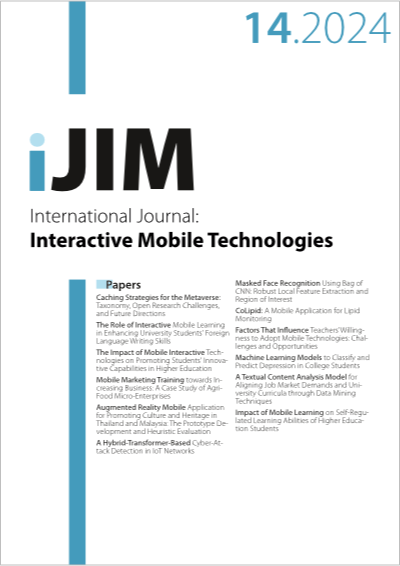Augmented Reality Mobile Application for Promoting Culture and Heritage in Thailand and Malaysia: The Prototype Development and Heuristic Evaluation
DOI:
https://doi.org/10.3991/ijim.v18i14.48381Keywords:
Mobile Human Computer Interaction, Augmented Reality, prototyping, heuristic evaluation, digital tourismAbstract
The global coronavirus pandemic sparked widespread lockdowns and travel restrictions, leading to a significant economic downturn. However, the subsequent development of vaccines prompted governments to ease restrictions and explore technology-driven strategies for tourism revival, including the use of mobile applications and augmented reality (AR). In light of the progress of AR, this study addresses the lack of AR applications for promoting tourism in Southeast Asia, particularly in Thailand and Malaysia, where language barriers hinder cross-cultural communication. Therefore, this study aims to develop a content-specific AR mobile application to enhance tourists’ exploration of cultural heritage and facilitate communication in these multicultural and Islamic-influenced regions. This study adopts the design thinking approach for a solution-based methodology. The developed AR mobile application aims to enhance the tourist experience by providing immersive and informative content specific to the culture and heritage. The prototype undergoes a heuristic evaluation by ten experts in human-computer interaction (HCI). The results show a positive consensus on many aspects, highlighting the potential of the AR mobile application to promote culture and heritage effectively. Qualitative exploration through expert feedback is recommended in future studies to refine specific elements for a universally satisfactory user experience.
Downloads
Published
How to Cite
Issue
Section
License
Copyright (c) 2024 Dr. Nurulnadwan Aziz, Siti Salbiah

This work is licensed under a Creative Commons Attribution 4.0 International License.



